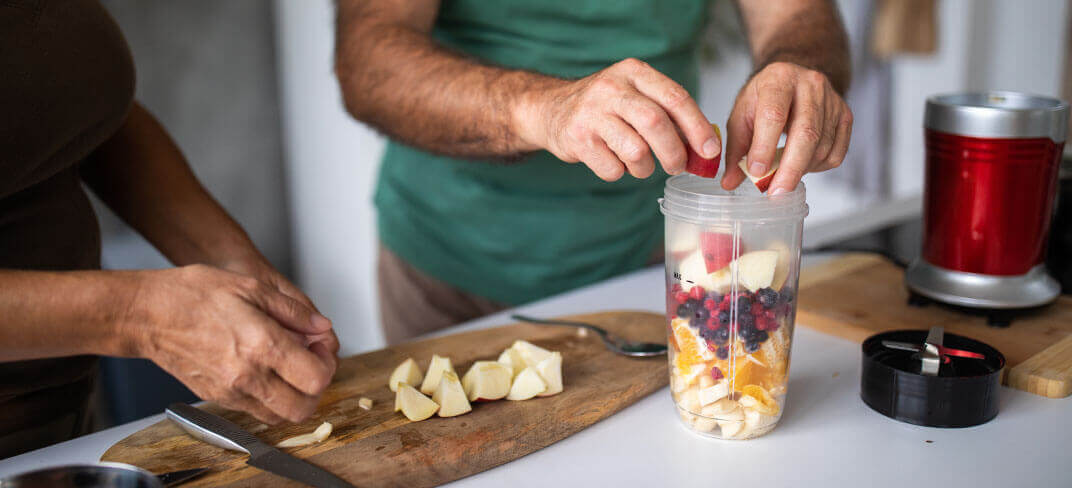10 Diet and Exercises Tips to Lower Your Risk of Prostate Cancer

Prostate cancer is the most common male cancer in Ireland. According to the Marie Keating Foundation, more than 3,800 men in Ireland are diagnosed with prostate cancer each year.
Prostate Health Basics
The prostate is a walnut-sized gland below the bladder and in front of the rectum. It produces the fluid in semen.
Growths in the prostate can be benign (benign prostatic hyperplasia) or cancerous. Some symptoms (like frequent urination) are similar for both. So, it's important to see your doctor if you notice any prostate urinary symptoms or if you have certain risk factors for prostate cancer.
What Are the Signs and Symptoms of Prostate Cancer?
Prostate cancer doesn't usually have symptoms in the early stages. As prostate cancer progresses, you may:
- Have bone pain.
- Have dull pain in the pelvic area.
- Have pain in your hips, lower back, or upper thighs.
- Have painful ejaculation.
- Need to urinate frequently.
- Loss of weight.
- Loss of appetite.
- Blood in your urine.
What Are the Risk Factors for Prostate Cancer?
Doctors don't yet know the exact causes of prostate cancer. But there are certain risk factors associated with prostate cancer, such as:
- Age – the risk increases with age. Prostate cancer usually affects men over 50.
- Family history – the risk is higher if you have a brother or father with the disease. It is also higher if your relative developed prostate cancer at a younger age or if you have more than one relative with the disease.
- Ethnicity – prostate cancer is more common in black Caribbean and black African men than in white or Asian men.
What Can I Do to Reduce the Risk of Prostate Cancer?
There's no magic bullet to ward off prostate cancer. Doctors don't know everything about the link between diet and prostate health. They also don't completely understand the relationship between exercise and prostate cancer.
In general, a heart-healthy lifestyle is good for prostate health. To reduce your risk of prostate cancer, keep your weight at a healthy level, don't smoke, and manage your daily stress.
Follow these 10 tips for good health:
1. Limit red meat.
Red meat (beef, pork, lamb) is high in saturated fat and calories. Chicken breast, fish, and beans are better sources of protein.
2. Eat fresh fruit and vegetables.
Tomatoes, broccoli, blueberries, and cauliflower contain nutrients that may help slow the spread of cancer.
3. Eat “good fats.”
Olive oil, fish, nuts, and avocados all contain healthy omega-3 fats. Avoid partially hydrogenated fats (also called trans fats) in many packaged foods.
4. Limit dairy and calcium.
A diet high in dairy and calcium may raise your risk of getting prostate cancer. Doctors recommend limiting calcium to 1,200 mg per day.
5. Quit smoking.
Tobacco has a negative effect on the whole body, and it's a major risk factor for prostate cancer. The good news? Ten years after quitting tobacco, your risk factor for prostate cancer plummets to that of a non-smoker your age.
6. Drink alcohol in moderation.
Heavy drinking weakens your immune system and puts you at risk for many diseases, including cancer.
7. Work exercise into your daily routine.
Any kind of movement is beneficial to prostate health, but many people find it difficult to stick to a rigid exercise routine. Instead, look for little ways to move more during your day.
8. Find a workout you love.
If going to the gym feels like just another chore, you're not going to stick with it. Instead, look for another form of exercise. A simple walk or bike ride can get your heart rate going and relieve stress.
9. Add yoga to your workout routine.
Stress increases your risk of developing many diseases, including prostate cancer. Try yoga therapy to increase blood flow and soothe stress. Bonus: Yoga increases your flexibility and adds muscle tone, which is good for your whole body.
10. Develop good sleep habits.
Adults need 7 to 9 hours of sleep each night to recharge and stave off diseases. Develop a soothing night-time routine for optimum rest. Turn off your phone and dim the lights before turning in.
Of course, there's no guarantee that lifestyle alone will prevent prostate cancer. Your genes play a big part in the disease. But a healthy lifestyle can go a long way to reduce the risk of prostate cancer.
UPMC Urology Services
If you are experiencing possible symptoms associated with prostate cancer, please contact your GP and ask for a referral to a UPMC urology consultant. We have locations at: